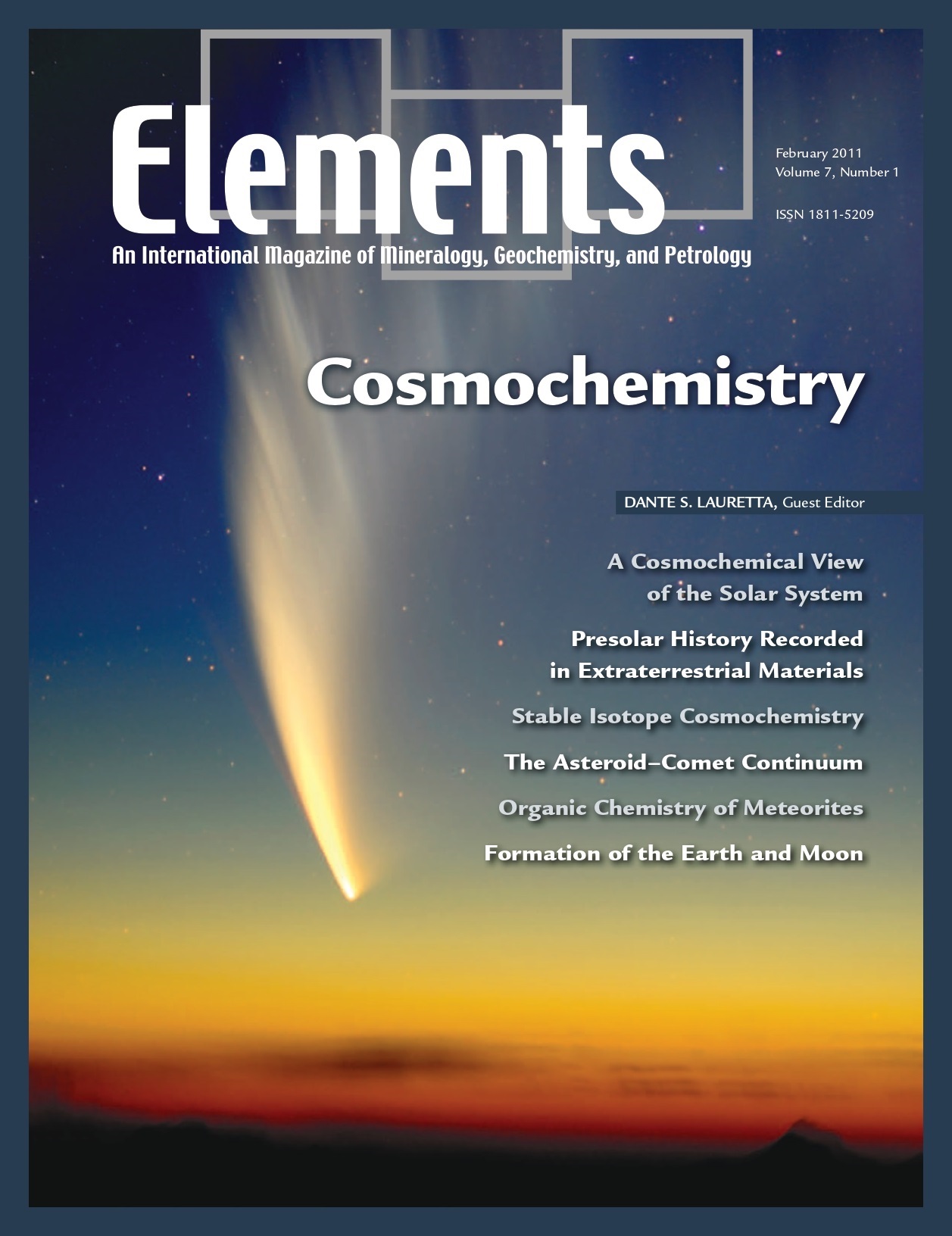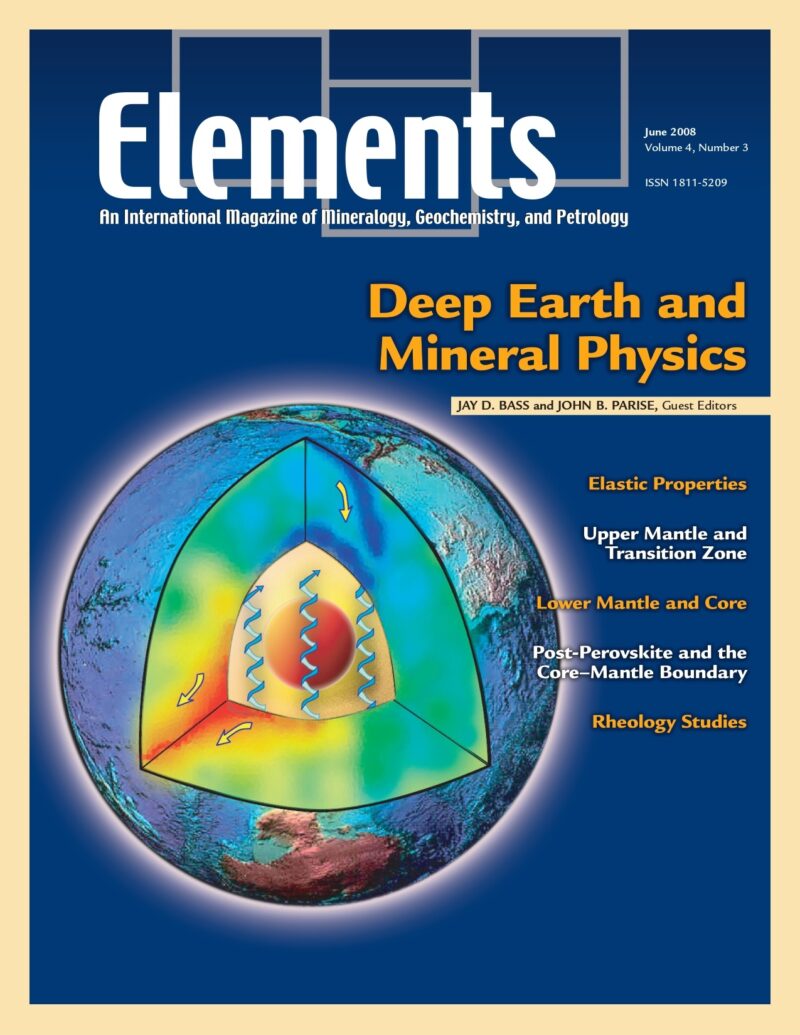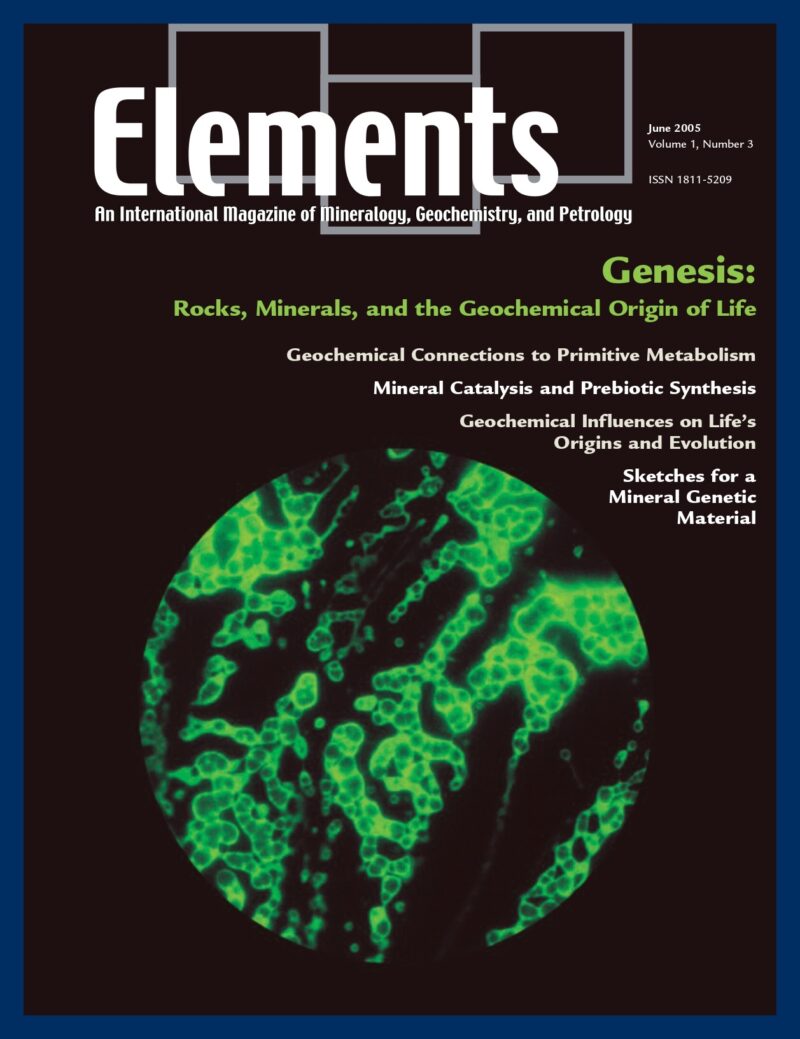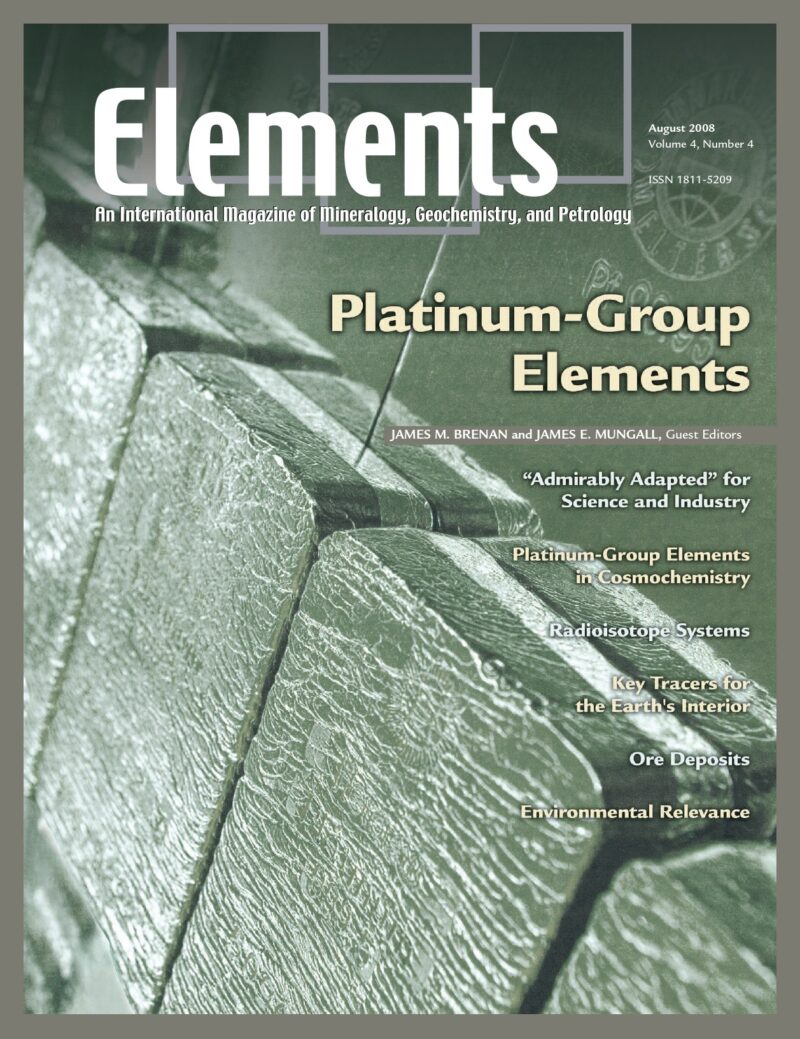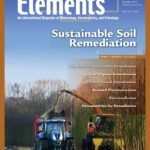
Sustainable Remediation Of Soils, December 2010, Vol. 6, No. 6
June 28, 2024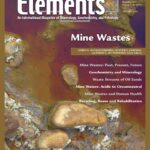
Mine Wastes, December 2011, Vol. 7, No. 6
June 28, 2024Cosmochemistry, February 2011, Vol. 7, No. 1
$20.00
Cosmochemistry is the study of extraterrestrial materials aimed at understanding the nature of Solar System bodies, including the planets, their natural satellites, and small bodies. An important goal is to increase our understanding of the chemical origin of the Solar System and the processes by which its planets and small bodies have evolved to their present states.
Cosmochemistry
February 2011, Vol. 7, No. 1
Cosmochemistry is the study of extraterrestrial materials aimed at understanding the nature of Solar System bodies, including the planets, their natural satellites, and small bodies. An important goal is to increase our understanding of the chemical origin of the Solar System and the processes by which its planets and small bodies have evolved to their present states. Research in cosmochemistry covers a wide range of disciplines and techniques, including mineralogy, petrology, major and trace element chemistry, isotope compositions, radiometric ages, magnetism, and radiation exposure effects. These studies provide a wealth of data about the processes of stellar evolution, planetary system formation, alteration in asteroidal and cometary interiors, and the accretion history of the Earth, including the origin of Earth’s volatile and organic material.
Why You’ll Love Elements Magazine:
- Expert Contributors: Articles written by renowned researchers in the field of geoscience.
- Engaging Content: Join a community of readers who are passionate about Elements.
- Exceptional Quality: Each issue is printed on high-quality paper with stunning visuals and detailed illustrations that bring complex scientific concepts to life.
Order your copy of the February 2011 issue of Elements magazine today and explore cosmochemistry.
Related products
-
Deep Earth And Mineral Physics, June 2008, Vol. 4, No. 3
$20.00The field of high-pressure mineral physics is central to our understanding of the Earth’s interior and its evolution. It is also a field that is rapidly advancing.
-
Genesis: Rocks, Minerals, And The Geochemical Origin Of Life, June 2005, Vol. 1, No. 3
$20.00Few scientific questions so capture the public imagination, or provoke such lively debate, as how life on Earth emerged. In this issue of Elements, four of the most creative minds in origins research present their original insights on the geochemical origins of life.
-
Platinum-Group Elements, August 2008, Vol. 4, No. 4
$20.00The geoscientific and economic significance of the PGE is immense. Due to their extreme siderophile and chalcophile behaviour, the PGE are highly sensitive tracers of geological processes involving metal and sulfide phases.

